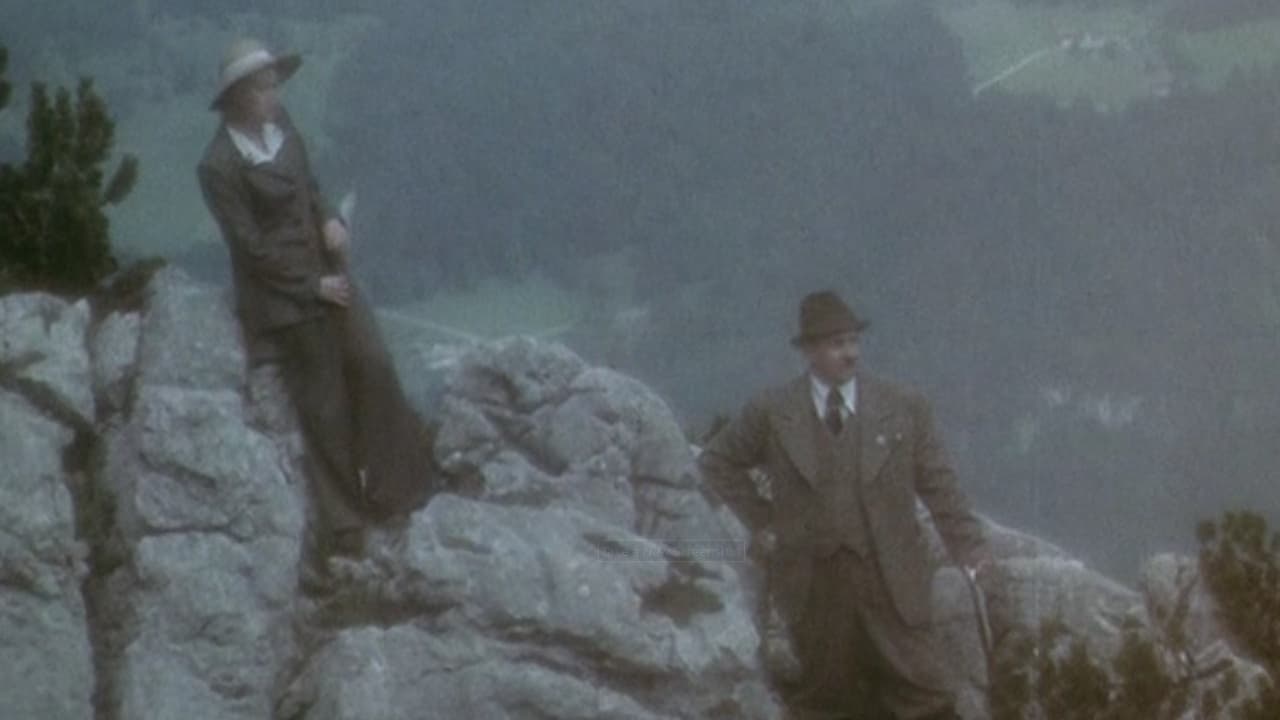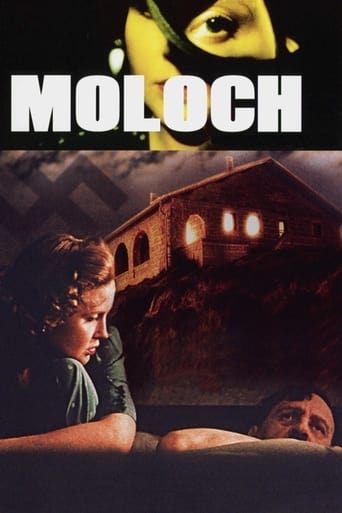



This Movie Can Only Be Described With One Word.
Boring
This movie was so-so. It had it's moments, but wasn't the greatest.
View Moreif their story seems completely bonkers, almost like a feverish work of fiction, you ain't heard nothing yet.
View MoreMolokh is an intimate portrait about the state of torment of a reduced delirious aristocracy. The limits of the characters are often confused with the environment, with the unreal atmosphere of the landscape. It is important to highlight its fine technical work and especially its cinematography: a very careful composition in each scene. The cold way in which the light is treated and the density of the environment in each picture are the perfect frame to explain the morbid delirium of a group of attenuated and bizarre figures confined to their desolation. The dialogues have a certain dynamic and despite their absurdity and pathos they maintain enough dramatic tension so that the film is not lost in boredom. An original movie with an independent way to explore, from the formal simplicity of its cinematic, the hypochondria, the mania and the phobia of the main character and his naive and wicked chorus.
View MoreThe year is 1942. Hitler is at the height of power. He and his inner circle retreat to a misty mountaintop castle in the Alps. Eva Braun, nearly naked and alone, basks in solitude on the ramparts. It is her only escape from the burden of loving a human chimera. Thus begins Alexander Sokurov's film MOLOCH, which won the Best Screenplay Award at the 1999 Cannes Film Festival. Webster's Third International English Dictionary describes Moloch as an ancient Semitic deity, and the figurative definition runs as, "A tyrannical power propitiated by human subservience or sacrifice." The latter is definitely in evidence as the film explores Braun's personal world and tribulations, as well as the grotesque behavior of Hitler and his obsequious associates. The film does not attempt to mirror history; rather it is a bold speculation that takes its cues from the past.Leonid Mozgovoy's performance as Hitler is uncanny. He is nervous, annoyed, self-absorbed, even vulnerable, and oblivious to the strained relations around him, including his troubled relationship with Braun, played by Yelena Rufanova. Their final scene is particularly compelling, where Braun in sympathetic tones tells Hitler as he is about to be driven away in his sedan, "Death is Death. It cannot be defeated."In a unique maneuver, Sokurov had his entirely Russian cast voice the dialogue in German, after which they were dubbed by native German actors from Berlin, creating a nearly seamless result.Unfortunately, the Russian version of the film in theaters had a voice-over translation (done entirely by Mozgovoy), which interferes with the German text, defeating the whole purpose of going to all that trouble. This decision was made in deference to Russian audiences, which are used to – and even sometimes prefer – this type of translation, but subtitles would have worked much better. Luckily, the Russian DVD has this option (Russian subtitles only). The film is more streamlined than other Sokurov efforts, and may be called one of his best works, if not the best. The editing and pacing are smoother than that of many of his other films. The recently released video version of the film contains 21 minutes of footage not seen in the theatrical version. The long version plays well, with more rich detail, more expository elements such as additional manifestations of Eva's mischievous nature and Adolf's sensitivity to smells and foodstuffs.Sokurov studied history at Gorky State University before becoming a filmmaker. He makes highly idiosyncratic, strikingly atmospheric and ponderously paced works, drawing inspiration from classical literature and music – what he calls "Old World art." He crafted the film from a screenplay entitled "The Mystery of the Mountain" (originally the title of the film), written by Yury Arabov, with whom he has collaborated frequently.The film can rightfully be called a cinematic milestone because of its portrayal of Hitler. For the first time in narrative film history, Hitler is shown to be human. This is ultimately a valuable artistic judgment, for it fosters understanding of the political forces that he set in motion.Sokurov notes, "Erich Fromm wrote that until we learn to understand Hitler's human nature, we will never understand anything about Nazism or learn to discern potential monsters in those lusting for power."
View MoreWhile a good movie certainly could be made about Hitler's time at the Berghof, this one is wide of the mark.None of the characters, except Borman, is convincing. Goebbels, who albeit wittier was nearly as much of a sycophant as Borman, is not so here. Hitler often comes off like a frightened little boy which seems silly and gratuitous. And Hitler didn't have blue eyes, or any other Aryan features particularly; which is one of the great paradoxes about the man. Didn't they have enough money in the budget to get brown contact lenses? But they really get onto tricky ground when they try to explore Hitler's sexuality. He is depicted, of course, as being a misfit who is aroused in an odd way. That's just too easy, and just as poorly thought out as everything else in this movie. Everything I've read about him indicates that he was a crushing bore off stage. My guess is he was just as tedious at bedtime matters.If you want to know what life was like in the Eagle's Nest, read Inside the Third Reich yourself. If you want another fantastic "here's how I think Hitler was a weirdo" story, watch this movie.
View Morebeing very impressed by the poetic imagery in sokurov's 'mother and son' i was very interested about moloch and especially when such a controversial theme as the inner live of hitler and his incrowd is involved. Alas this was a pure disappointment; depicting hitler as a raving lunatic and a village idiot in an overtly absurdist way is almost as insulting to the course of history as portraying hitler as a 'good guy'. Foggy decors, 'ballet-movie' sequences and pseudo-artistic black white scores only help to establish an artsy fartsy feel about this whole project. Concluding very interesting idea to begin with but an utterly failed and boring production.
View More